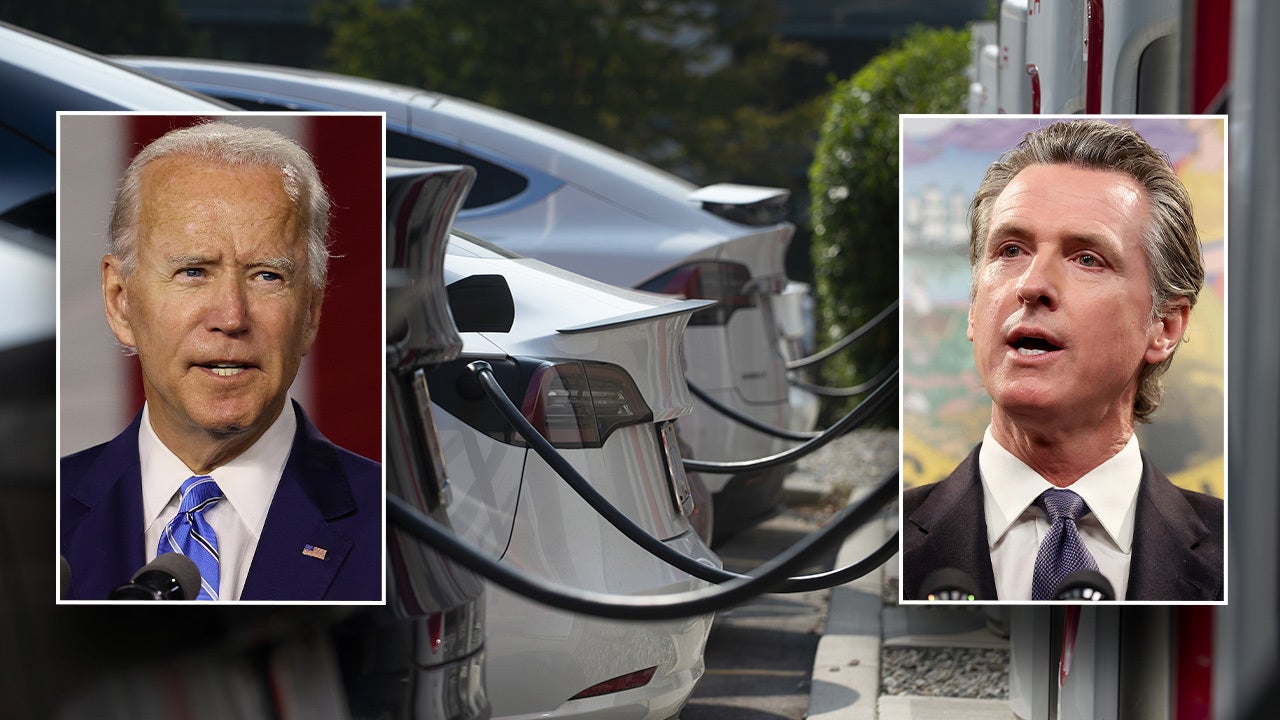EV Mandate Opposition Grows: Car Dealers Push Back

Table of Contents
Economic Concerns of Car Dealerships Regarding EV Mandates
The economic ramifications of EV mandates are a major source of concern for car dealerships. The transition requires substantial investments and adjustments to existing business models, potentially impacting profitability and long-term viability.
High Upfront Investment Costs
Adapting to the demands of EV sales necessitates significant capital expenditure for dealerships. This includes:
- Specialized EV charging infrastructure: Installing and maintaining fast-charging stations requires substantial upfront investment and ongoing operational costs. The infrastructure needs differ significantly from traditional gasoline stations, requiring specialized equipment and expertise.
- Training technicians on EV repair and maintenance: EVs have different mechanical components and require specialized training for technicians to diagnose and repair them effectively. This investment in training is crucial for ensuring efficient after-sales service.
- Upgrading showroom displays and marketing materials: Showrooms need to be updated to showcase EVs and their features appropriately, requiring investment in new displays, brochures, and marketing campaigns specifically targeted towards EV buyers.
Reduced Profit Margins on EV Sales
Dealerships are also worried about lower profit margins on EV sales compared to traditional internal combustion engine (ICE) vehicles. Several factors contribute to this:
- Increased competition in the EV market: The EV market is rapidly evolving with increasing competition, putting pressure on dealerships to offer competitive pricing to attract buyers. This can squeeze profit margins considerably.
- Pressure to offer competitive pricing to attract buyers: Consumers are often more price-sensitive when purchasing EVs, especially in the current market where numerous EV models are being launched.
- Lower service revenue compared to ICE vehicles: EVs have fewer moving parts than ICE vehicles, leading to lower service and repair revenue for dealerships. This impacts the overall revenue stream and long-term profitability.
Inventory Management Challenges
Managing EV inventory presents unique challenges for dealerships. Supply chain disruptions and fluctuating demand add layers of complexity:
- Difficulty predicting EV sales due to market uncertainty: The relatively new nature of the EV market makes accurate sales forecasting difficult, making it challenging to manage inventory effectively.
- Risks of excess inventory or stockouts: Misjudging demand can lead to either excess inventory tying up capital or stockouts that lose sales opportunities.
- Increased complexity in managing charging infrastructure availability: Ensuring sufficient charging infrastructure capacity to support EV sales requires meticulous planning and management.
Practical Challenges Faced by Dealerships in Adapting to EV Mandates
Beyond economic concerns, dealerships face numerous practical challenges in adapting to the mandates:
Lack of Consumer Demand in Certain Markets
Consumer demand for EVs varies significantly across geographical regions. Several factors contribute to the lack of consumer readiness:
- Limited consumer awareness and understanding of EV technology: Many consumers lack a complete understanding of EV technology, charging infrastructure, and the benefits of EV ownership.
- Range anxiety and charging infrastructure concerns among potential buyers: Concerns about limited driving range and the availability of charging stations remain major barriers for potential EV buyers.
- High upfront cost of EVs compared to gasoline cars: The higher initial purchase price of EVs compared to gasoline vehicles remains a significant barrier for many consumers.
Insufficient Training and Support for Dealerships
Dealerships require comprehensive training and support to sell and service EVs effectively. Currently, there are significant gaps:
- Need for more comprehensive training programs on EV technology: Manufacturers need to invest in more extensive training programs for dealership staff to ensure they have the expertise to handle EV-specific issues.
- Lack of technical expertise in EV repair and maintenance: The shortage of skilled technicians specializing in EV repair and maintenance poses a significant challenge.
- Need for better support from manufacturers in handling EV-specific issues: Dealerships need stronger support from manufacturers in handling complex EV-related issues, including diagnostic tools and technical assistance.
Limited Availability of EV Models and Parts
Supply chain constraints impact the availability of EV models and parts, causing further challenges for dealerships:
- Difficulties in securing EV inventory: Demand often outstrips supply, making it difficult for dealerships to secure sufficient EV inventory to meet customer demand.
- Longer wait times for EV repairs due to limited parts availability: Supply chain issues can lead to extended wait times for parts, impacting customer satisfaction and operational efficiency.
- Impact on customer satisfaction due to delays in service: Delays in servicing EVs can negatively affect customer satisfaction, damaging the dealership's reputation.
The Impact of EV Mandate Opposition on the Automotive Industry's Transition to Electric Vehicles
The opposition to EV mandates from car dealerships has significant implications for the industry's transition to electric vehicles:
Slowed Adoption Rate
Dealer resistance could significantly slow down the overall adoption rate of EVs, hindering the achievement of environmental goals.
Increased Costs for Consumers
The increased costs and difficulties faced by dealers might indirectly lead to higher prices for consumers, making EVs less accessible.
Potential for Legal Challenges
Dealerships may launch legal challenges against mandates they view as unfair or impractical, further delaying the transition.
Need for Collaboration
Finding effective solutions necessitates close collaboration between policymakers, manufacturers, and dealerships to address the concerns raised.
Conclusion
The growing opposition to EV mandates from car dealers underscores the significant economic and practical challenges inherent in the rapid transition to electric vehicles. Addressing these concerns is crucial for ensuring a smooth and successful transition. Dealerships are vital players in the EV adoption process, and collaboration among all stakeholders is essential to overcome the obstacles. Ignoring the concerns around the EV mandate could significantly hamper the progress of electric vehicle adoption. Policymakers and manufacturers must proactively address these concerns and work collaboratively with dealerships to find solutions that support both the transition to electric vehicles and the long-term success of the automotive retail sector. A balanced approach, acknowledging both environmental goals and the economic realities of car dealerships, is necessary to navigate the future of the automotive industry and effectively implement successful EV mandates.

Featured Posts
-
 Deudores De Prestamos Estudiantiles Temen Un Segundo Mandato De Trump
May 17, 2025
Deudores De Prestamos Estudiantiles Temen Un Segundo Mandato De Trump
May 17, 2025 -
 Pre Series Injury Report Giants Vs Mariners April 4 6
May 17, 2025
Pre Series Injury Report Giants Vs Mariners April 4 6
May 17, 2025 -
 Ontario Budget Reveals 14 6 Billion Deficit Breaking Down The Numbers
May 17, 2025
Ontario Budget Reveals 14 6 Billion Deficit Breaking Down The Numbers
May 17, 2025 -
 Rep Crocketts Criticism Of Trumps Economic Policies Inflation And Wages
May 17, 2025
Rep Crocketts Criticism Of Trumps Economic Policies Inflation And Wages
May 17, 2025 -
 Cassidy Hutchinsons Memoir Key Jan 6th Hearing Witness To Detail Events This Fall
May 17, 2025
Cassidy Hutchinsons Memoir Key Jan 6th Hearing Witness To Detail Events This Fall
May 17, 2025
Latest Posts
-
 La Participacion De David Del Valle Uribe En La Olimpiada Nacional Por Reynosa
May 17, 2025
La Participacion De David Del Valle Uribe En La Olimpiada Nacional Por Reynosa
May 17, 2025 -
 David Del Valle Uribe Trayectoria Deportiva En La Olimpiada Nacional Representando A Reynosa
May 17, 2025
David Del Valle Uribe Trayectoria Deportiva En La Olimpiada Nacional Representando A Reynosa
May 17, 2025 -
 Reynosa En La Olimpiada Nacional El Desempeno De David Del Valle Uribe
May 17, 2025
Reynosa En La Olimpiada Nacional El Desempeno De David Del Valle Uribe
May 17, 2025 -
 David Del Valle Uribe El Orgullo De Reynosa En La Olimpiada Nacional
May 17, 2025
David Del Valle Uribe El Orgullo De Reynosa En La Olimpiada Nacional
May 17, 2025 -
 Acidente Envolvendo Onibus Universitario Informacoes Preliminares
May 17, 2025
Acidente Envolvendo Onibus Universitario Informacoes Preliminares
May 17, 2025
